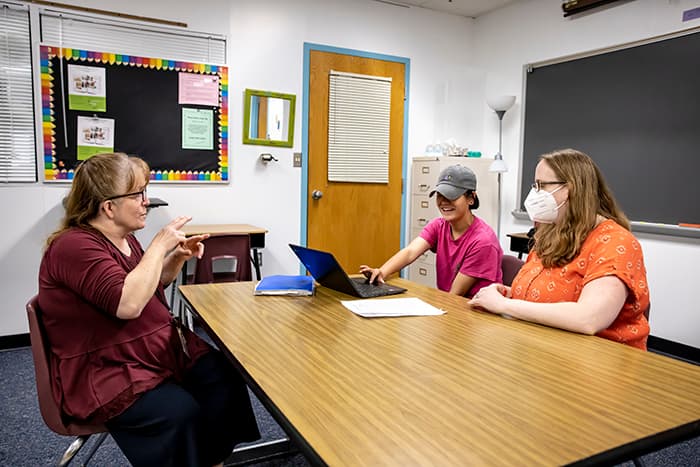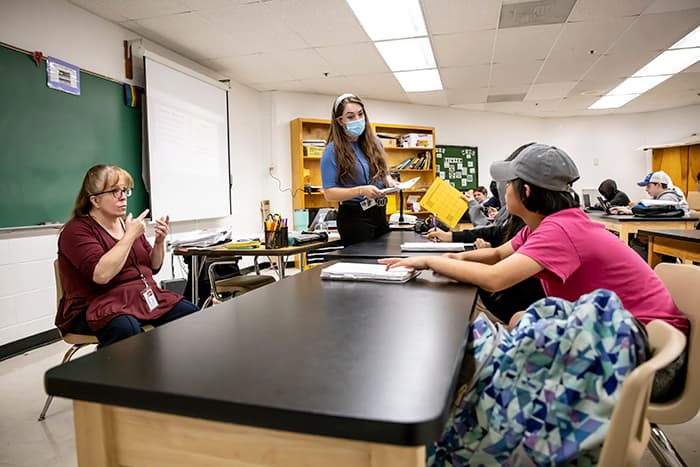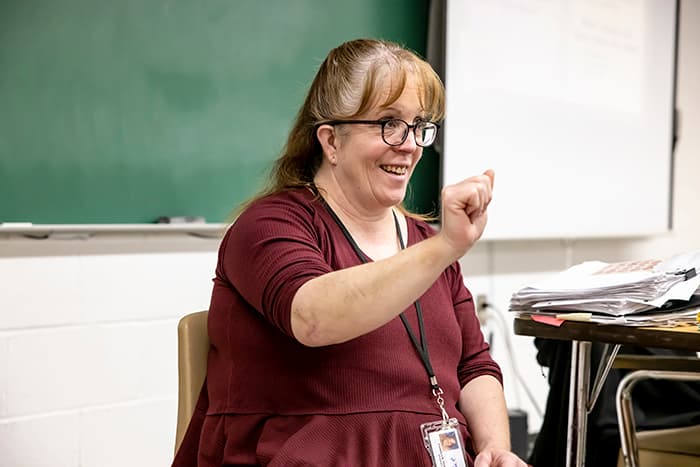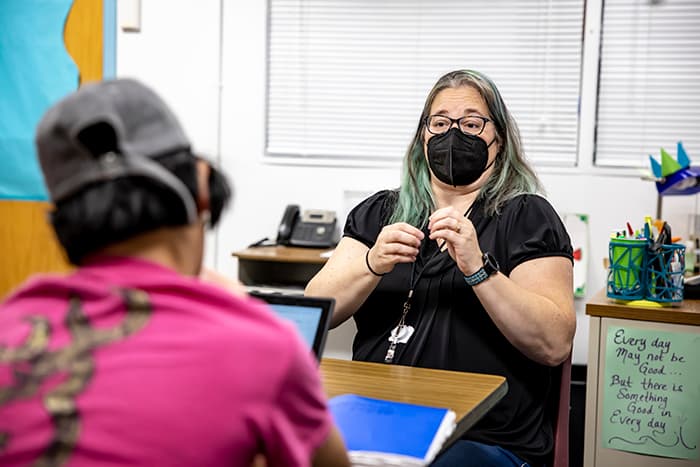HCPSS’ American Sign Language Interpreters Facilitate Educational Access and Engagement
June 2nd, 2022

HCPSS’ deaf and hard of hearing students have access to a range of support services, including those provided by the district’s American Sign Language (ASL) Educational Interpreters. With the exception of recess and lunch, an Educational Interpreter spends the entire school day with the student to whom they are assigned, facilitating communication between the student, their teacher, and their peers. Whether that means interpreting a teacher’s directions into ASL or promoting a deaf or hard of hearing student’s communication with a friend, the interpreters are there to ensure that deaf and hard of hearing students are able to fully access instruction and be actively engaged members of the school community.
“While interpreting is a critical part of an ASL interpreter’s role, it is not their only function,” says Colleen Markiewicz, HCPSS’ ASL/English Interpreter Program Head.
“Fifty percent of our job is interpreting; the other fifty percent is advocating for the profession. This means modeling for the deaf and hard of hearing students on how to use interpreters and encouraging them to advocate for themselves.”

For example, ASL interpreters teach students about where to direct their attention in the classroom.
“While interpreters are part of a student’s support team, the teacher is leading the class and delivering the content. So, we teach the student to focus first and foremost on what the teacher says, and to direct their questions to the teacher. As interpreters, we will then take what the teacher says and make it accessible to the student using ASL,” explains Carolyn Torsiello, one of HCPSS’ 12 full-time ASL interpreters.
ASL interpreters will match spoken English to ASL to provide equal access to communication for the deaf or hard of hearing student . That includes mirroring the tone in which a given message is delivered.

“In addition to signing what is said, we incorporate facial expressions and body language to help communicate the emphasis that the speaker is using, so that the student we are working with gets not only the words, but also the broader context of what is being said,” explains Markiewicz.
While HCPSS ASL interpreters primarily support students during the school day as part of the students’ individual education plans (IEP), they are also available to support students and the deaf community at school-related events, such as field trips, parent-teacher association (PTA) events, parent-teacher conferences, and back-to-school nights.
“We are ready and willing to support students wherever we can,” says Torsiello.
If you think your young child might qualify for ASL interpreter services, contact HCPSS’ Early Intervention Team via Child Find. Additional information on supports available to deaf and hard of hearing students is available online.

 HCPSS
HCPSS